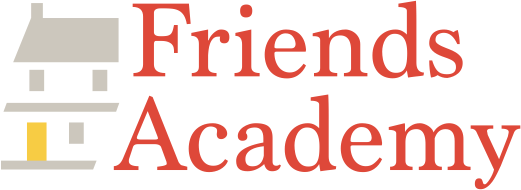Explore This Page
Early Childhood
At Friends Academy, we know beginnings matter. We see young children as powerful, capable agents of their learning.
Welcome to
Early Childhood
(Ages 3-4)
Creating a culture of inquiry, engagement, and reflection begins in Early Childhood.
Our Reggio Emilia-inspired Early Childhood program supports students' curiosity, as our educators embed the academic foundation in literacy, numeracy, and social and emotional learning in student-driven curricular themes. Our Quaker approach deepens this work and establishes essential academic and social building blocks.
In addition, our approach to emergent curriculum leverages students' natural curiosity and interests, which actively engages them both academically and socially.
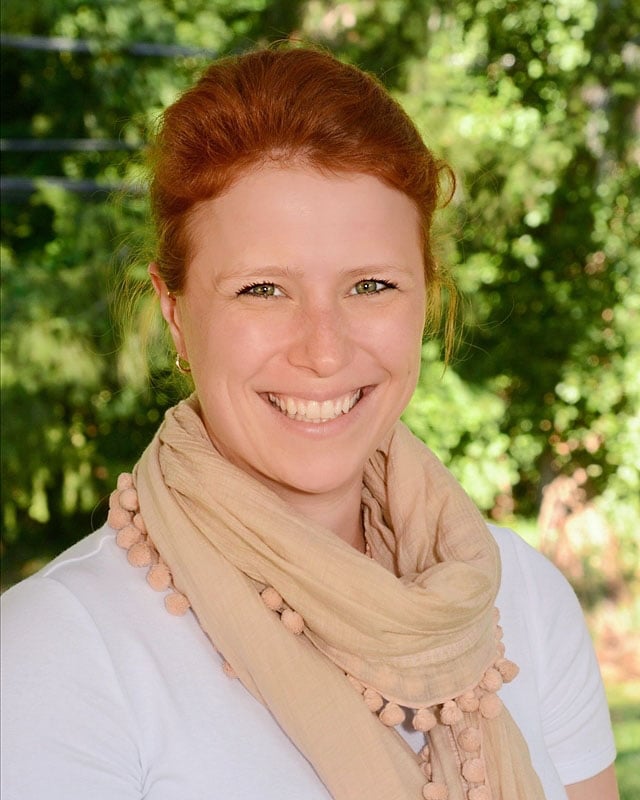
Emergent curriculums encourage students to take initiative and ownership of their learning. Children learn how to build and develop relationships with one another and the members of their community.
A Day in the Life of Early Childhood!
Morning
- Arrival and Free Play (8:00 am): As children arrive, they greet their friends and teachers, put away belongings, and practice independence by selecting their morning activity. Arrival time intentionally fosters a sense of community and belonging, setting a positive tone for the day.
- Morning Meeting (8:45 am): During morning meetings, children come together to sing a hello song, review the schedule, and take attendance. As children share their thoughts and feelings, they develop communication skills and contribute to a supportive classroom environment.

- Morning Snack (9:00 am): Friends Academy supplies snacks, including fresh fruit daily, plus crackers, chips, pretzels, etc. Snack is a time for children to nourish their bodies and practice social skills as they chat and share with peers.
- Morning Specials (Time varies): Classes may include Music, Library, Art, Creative Spanish Movement, Forest Program, or Physical Education.

- Centers (10:00 am): In centers, children engage in hands-on projects guided by teachers, enhancing their creativity and critical thinking through collaborative learning experiences.
- Playground Time (11:00 am): On the playground, children engage in physical activity and imaginative play, which is essential for their physical development and social interaction.
Afternoon
- Lunch and Rest (12:00 pm): Lunch and rest time allow children to enjoy nutritious meals and recharge, promoting healthy habits and the importance of self-care. Children practice independence by taking out their lunch boxes and finding a seat with friends. When children have finished eating, there is quiet book time and rest time on our mats in the classroom. Children rest for approximately 30 to 40 minutes, depending on need.
- Self-Care: Students practice self-care throughout the day by toileting and washing hands with increasing independence.
- Outdoor Exploration (1:00 pm): Children adventure outside daily to investigate nature and our expansive campus, sparking curiosity and a love for learning about the world around them. Once per week, children visit our Forest Program.

- Afternoon Snack (2:00 pm)
- Story (2:15 pm): Storytime captivates children with tales that ignite their imagination and supports the development of reading comprehension, listening skills, and early phonemic awareness.
- Closing Meeting (2:30 pm): Children close their day by reflecting on their day and sharing their favorite moments, reinforcing their learning and encouraging a sense of closure and accomplishment.
- Dismissal (2:45 pm)
Academic Curriculum
Our Quaker Approach to Education
Strengthened by our Quaker values, the important skills of exploration, investigation, and inquiry are the basis for all learning that takes place in the Friends Academy Early Childhood program. We believe children learn best when they are passionate and motivated about their learning.
Multi-sensory and hands-on experiences help children develop critical thinking skills such as problem-solving, perseverance, and the ability to express themselves and value the voices and ideas of others.
Responsive Classroom
Our Early Childhood program uses Responsive Classroom, which is an evidence-based approach to teaching and learning that puts students at the center of their academic and social journey.
Its guiding principles focus on how we teach versus what we teach, cognitive growth, and building relationships. This approach recognizes that the deepest learning happens when both social/emotional and academic learning are prioritized.
As part of Responsive Classroom, children gather each day to greet each other, make eye contact, shake hands, communicate and share their thoughts. These simple but powerful actions help children learn what inclusion looks like in action, practicing care, kindness, and belonging.
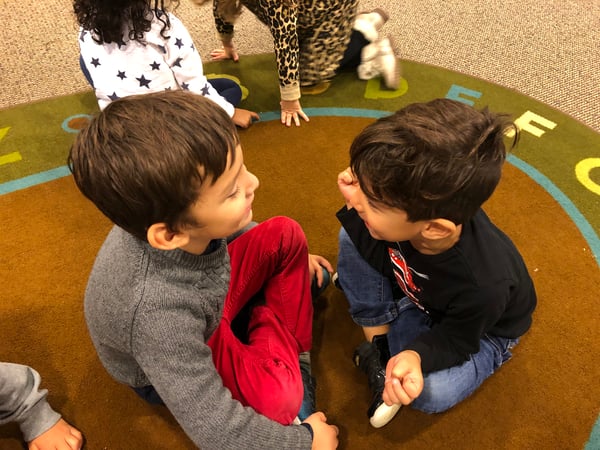
Reggio Emilia Curriculum
Our Reggio Emilia curriculum is a student-centered approach to teaching that uses self-directed, experiential learning in relationship-driven environments. We begin with questions that spark children’s interest in a topic, and then encourage them to generate their own ideas, making their way to the answer through question and collaboration. This approach allows children to use their sense of wonder to explore the different questions and solutions at hand. As a result, our youngest students develop the critical thinking, collaboration, and communication skills necessary to enter the next phase of life.
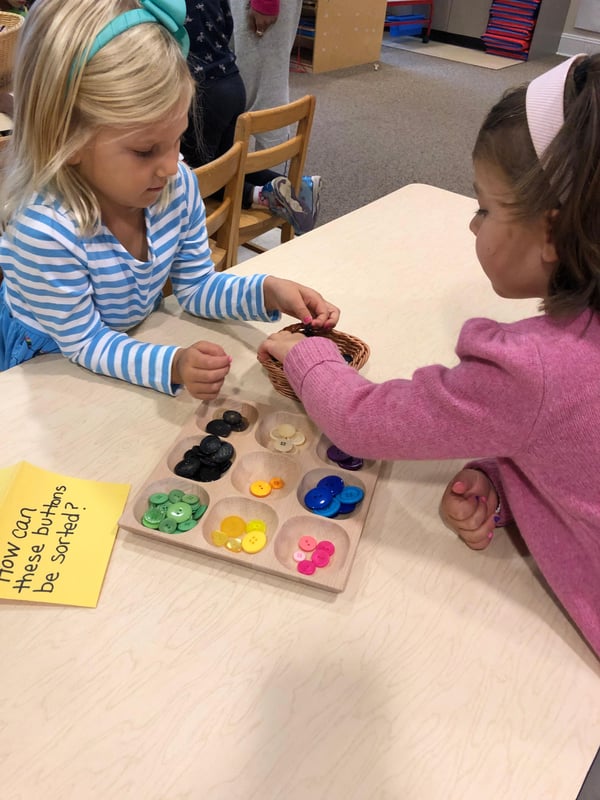
Emergent Curriculum
Our Emergent curriculum puts the power of learning in the children's hands as they give voice to their imagination and wonderings. Through their excitement and enthusiasm for a topic, we create a sophisticated curriculum that teaches key themes and critical thinking skills.
Emergent curriculum leverages students' natural curiosity and interests to build active engagement, thereby cultivating a love of learning and collaboration. Emergent curriculum helps students take initiative and ownership of their learning.
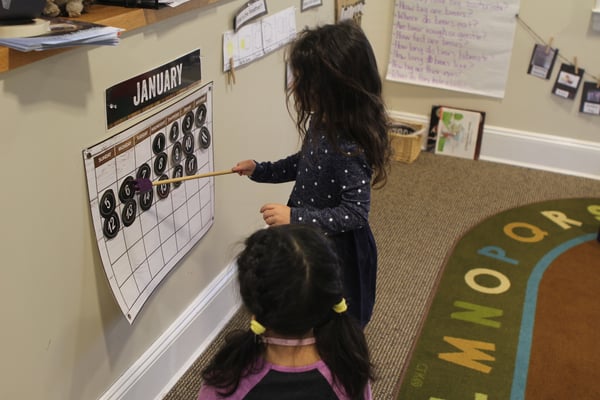
An Introduction to Literacy
In Playgroup, children are given the opportunity to create letters before they’re ready to write them on paper. Learning about letters through shapes and physical application helps students gain valuable cognitive abilities that will assist them with their developing fine motor skills.
In Pre-K, the Fundations Writing approach evolves our students' literacy as they are formally introduced to letters and their sounds, and encouraged to recognize and write letters in a print-rich environment.
Building phonemic skills prepares them for a successful transition to Kindergarten.
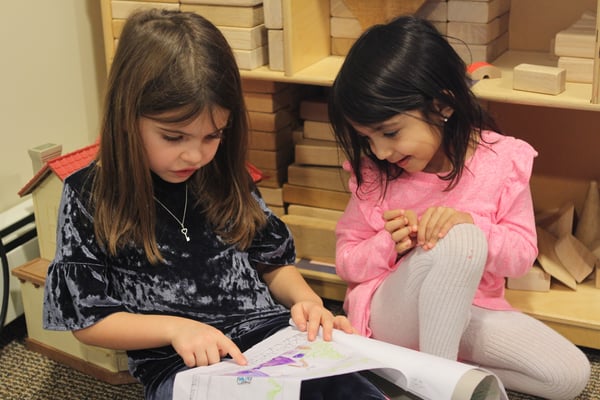
Science
The Early Childhood Science Curriculum, integrated throughout the school day, is Reggio Emilia-inspired and fosters the “scientist” in each child. Children explore, investigate, experiment, and predict both inside and outside of the classroom using both natural and manmade materials. In this way, children do not just learn scientific concepts, but build the intrinsic habits and skills of young scientists.
Students are challenged to dive deeper into topics, including light and sound, matter, weather phenomena, the water cycle, and exploration of plant and animal ecosystems.
Mathematics
Math is a language and is learned, organically, within the emergent curriculum to provide meaning and context that children can relate to.
Children learn by doing and our Early Childhood program affords students the opportunity to build their early numeracy skills and number sense by applying them to real-world experiences both within the classroom and in nature.
For example, our Block curriculum affords children the opportunity to reason, communicate, and develop their spatial understanding, while nature-based exploration in our Forest Program provides opportunities for children to collect, sort, and manage a variety of natural resources and materials that encourage them to problem-solve.
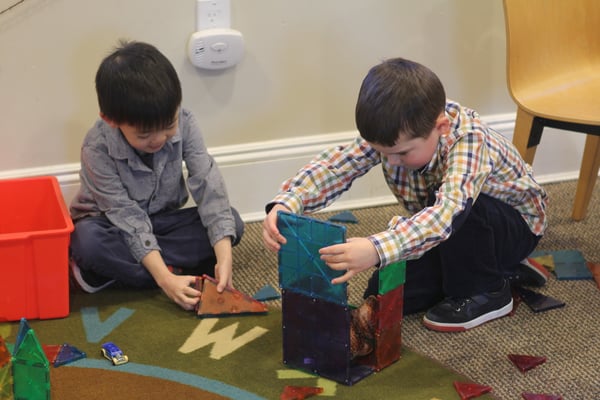
Block Play
Block play is emphasized throughout the day, creating a space for the children to be creative, explorative, imaginative, and inventive. Block play encourages spatial awareness, socialization, shape recognition, and sparks play scenarios that encourage children to work together to create stories, which incorporate early literacy skills.
Blocks represent mathematical units and help build on early mathematical literacy concepts and understanding. Block play also encourages children to learn the important analytical skills of prediction and cause and effect, and expands their vocabulary as they communicate with each other through collaboration.
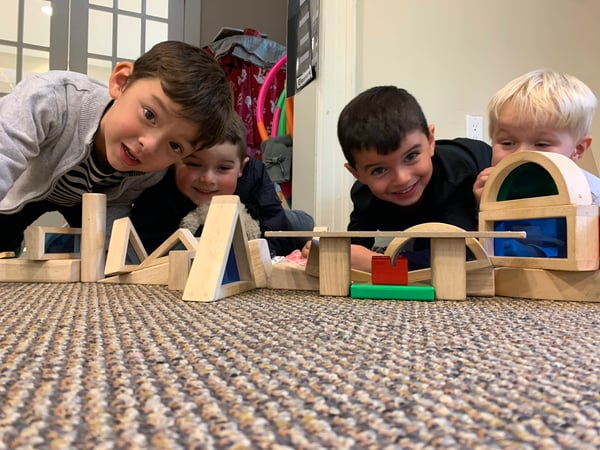
Spanish
Our World Language Program begins in Play Group with the exploration of Spanish. Through the Organic World Language Approach (OWL), students engage in a multisensory environment, including dance, music, and role-play.
OWL encourages students to better understand and appreciate different cultures and influential figures across Spanish-speaking countries. Exposure to different ways of thinking, speaking, and communicating allow students to understand and appreciate global cultures from an early age.
Arts
Arts in Early Childhood is deeply embedded in a student’s daily experience as well as supported by dedicated time with music, dance, and visual arts faculty. Our approach is guided by the Reggio Emilia philosophy of immersion, integration, and the lived experience of engaging in the world around you through curiosity and exploration.
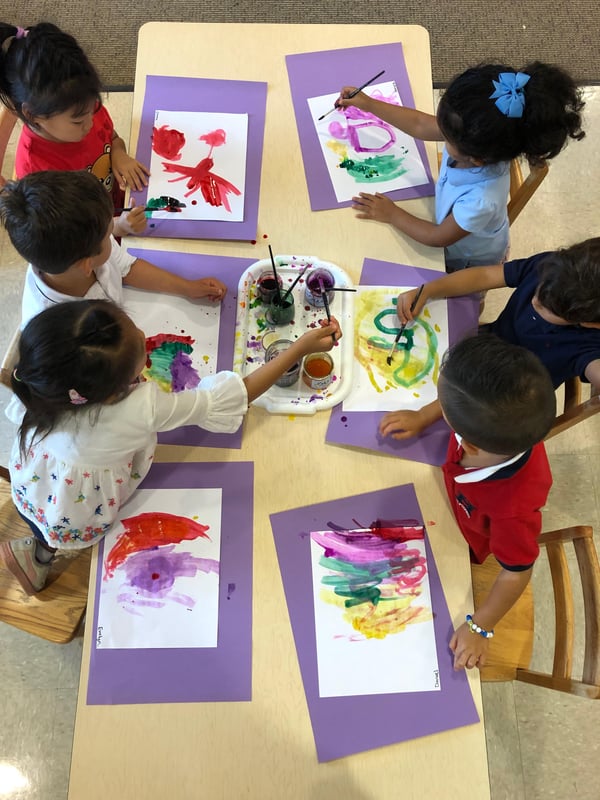
Early Childhood Viewbook:
Discover Your Voice
About the Guide
This guide introduces Friends Academy's Early Childhood program, emphasizing academic excellence, personalized learning, and Quaker values. It fosters curiosity, community connection, and foundational skills for kindergarten success in a nurturing environment.
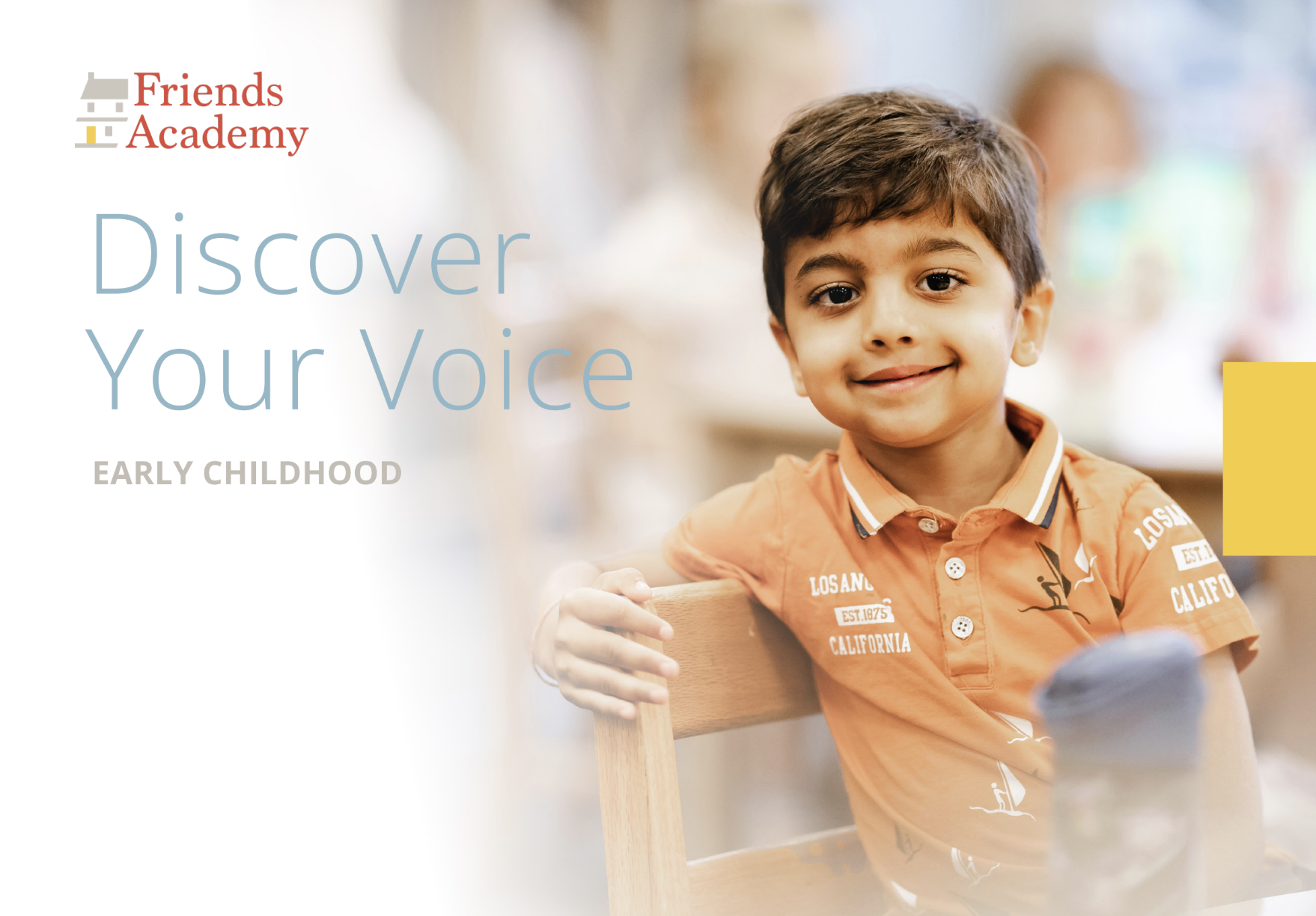
Each day in our Early Childhood program at Friends Academy, children paint, sing, count, graph, share, and explore nature. Students develop readiness skills in literacy, numeracy, and physical and social-emotional development through hands-on experiences that allow them to play, investigate, and create.
Children participate in Music Together, a multicultural program that promotes and embraces diversity through singing songs. Our Creative Movement class combines different movement challenges that teach children dance expression and strengthen cognitive understanding of physical patterns.
What
Makes Us
Unique
Simplicity, peaceful resolution of conflict, integrity, community, equality, and stewardship are the foundation on which we deepen our academic excellence, as well as honor the inner light in each child.
In Fall 2021, our Forest Program opened! A place where the curriculum is nature, the Forest Program features sensory and pollinator gardens, as well as a dry stream swale – allowing students to observe science in real-time, think critically, and stretch their imaginations. Learn more.
In Early Childhood, our youngest learners practice mindfulness daily, learning how to settle their bodies and calm their minds to transition between activities, regulate their emotions, and deepen their academic focus.
Forest Program
The Forest Program at Friends Academy promotes real-world exploration, experimentation, and innovation in the natural environment. Our students use the natural world as a living laboratory – observing, drawing hypotheses, creating, engineering, and testing their theories through hands-on learning that is student-driven.
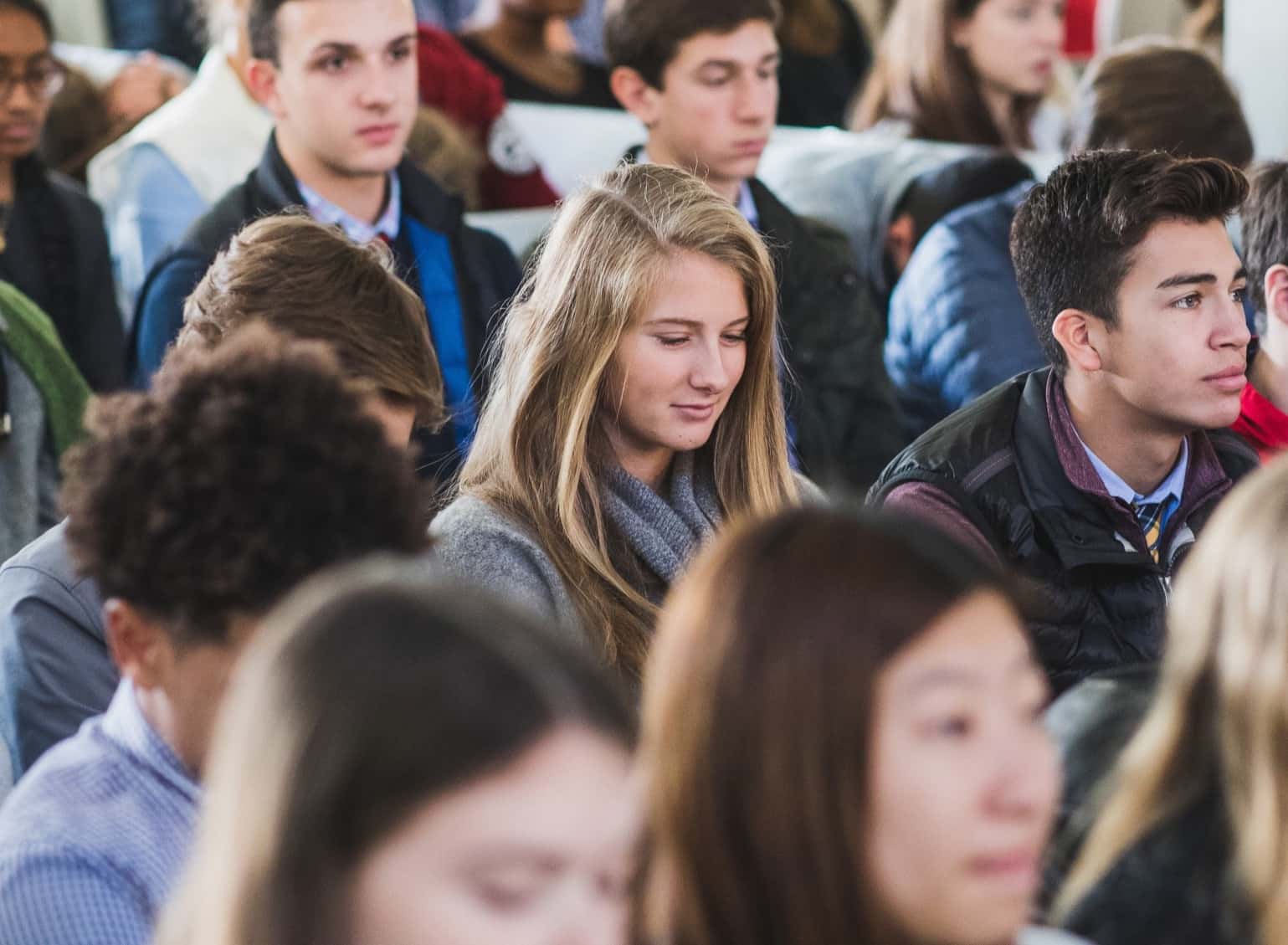
With a rigorous academic program rooted in our Quaker values, students engage in a balanced education that ensures they understand their impact on the world around them with reflection and integrity - not just for now, but for the world of tomorrow.
